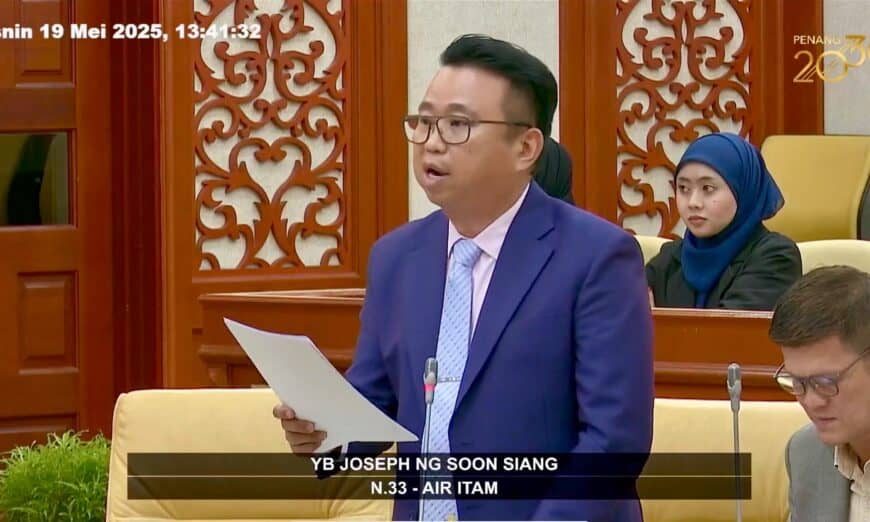THE state government has been urged to maintain the i-Sejahtera programme without any changes to ensure the continued well-being of the community, says Joseph Ng (PH–Air Itam).
According to Ng, the i-Sejahtera programme was one of the earliest initiatives introduced by the Pakatan Rakyat government, which later became Pakatan Harapan and is now continued under the Unity Government.
“I would like to state my stand that there should be no reduction, cancellation, or amendment to the eligibility criteria of the i-Sejahtera programme,” Ng said during the State Legislative Assembly in Light Street today.
Launched in 2009, the i-Sejahtera programme was designed to assist individuals from underprivileged backgrounds.
The programme provides support to senior citizens, single mothers, and persons with disabilities, and includes disbursements under the Anak Emas fund.
Ng noted that in the current climate of financial constraint, there have been proposals to reassess the programme due to its substantial cost.
“To continue implementing the programme in its entirety, the state government must demonstrate strong financial commitment.
“In light of this, I suggest reviewing and restructuring agencies that have failed to show measurable impact or provide value for public spending.
“This is a ‘value-for-money’ approach. Agencies that fall short should be downsized to reduce unnecessary expenditures.
“The savings from such restructuring efforts can be redirected to beneficial initiatives like the i-Sejahtera programme,” he added.
Earlier, on May 9, Chief Minister Chow Kon Yeow said the state government was considering a review of the i-Sejahtera social welfare aid programme. He explained that some categories might no longer be relevant and could be replaced with new initiatives. However, the review does not imply that the aid will be reduced.
Meanwhile, Ng also highlighted that as of October 2024, Penang has a total of nine Pusat Aktiviti Warga Emas (PAWE) centres.
“PAWE, a non-governmental organisation (NGO), plays an important role by offering space for senior citizens to participate in daily community activities.
“It also provides social support and development opportunities for the elderly through collaboration between the Ministry of Women, Family and Community Development (KPWKM), government agencies, and NGOs,” he added.
Story by Tanushalini Moroter

